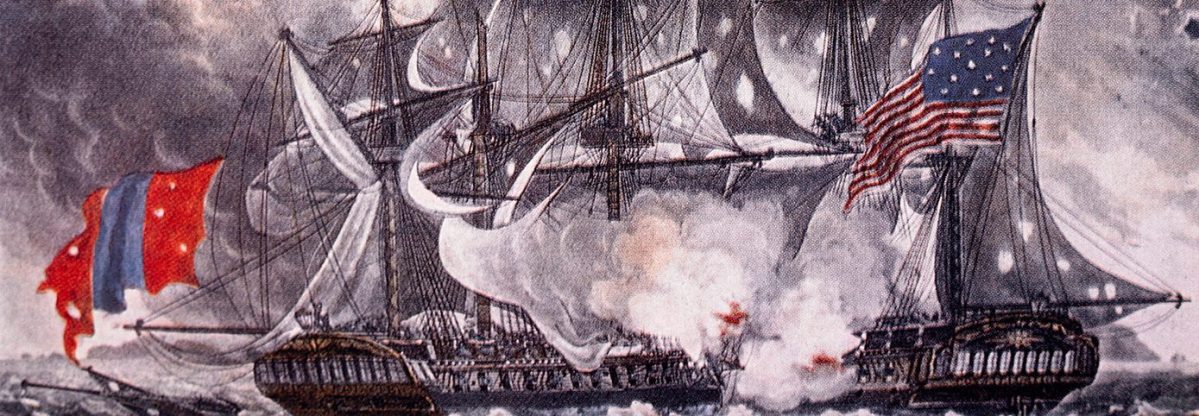Imagine a young America, barely two decades old, suddenly thrust into a maritime showdown that would test its very survival! The late 18th century was a tumultuous time for the newly formed United States, with international tensions simmering like a pot ready to boil over.

USS Constellation’s historic battle with L’Insurgente – Credit: Wikimedia Commons
The roots of the Quasi-War ran deep into the complex diplomatic landscape following the American Revolution. After breaking free from British rule, the United States found itself navigating treacherous international waters – both literally and figuratively. France, once a crucial ally, had become an unexpected adversary, threatening American merchant ships and challenging the young nation’s sovereignty.

Naval engagement during the Quasi-War – Credit: U.S. Naval History and Heritage Command
The spark that ignited this undeclared naval conflict was the infamous XYZ Affair. Diplomatic negotiations turned into a diplomatic nightmare when French officials demanded bribes to even begin talks. American envoys were shocked – this was no way to treat a sovereign nation! The incident pushed tensions to a breaking point, forcing the United States to take unprecedented action.
In response, the young American Navy emerged as an unexpected powerhouse. Despite being a relatively new maritime force, American naval commanders demonstrated remarkable skill and determination. Ships like the USS Constellation became symbols of national pride, capturing French privateers and protecting American shipping routes in the Caribbean.

French and American vessels engaged in combat – Credit: InsideHook
Naval battles became the primary theater of this conflict. Commanders like Thomas Truxtun led daring engagements that proved the United States was not a nation to be trifled with. Each naval victory was more than just a military triumph – it was a statement of national identity and resilience.
Diplomacy ultimately proved more powerful than cannons. The Convention of 1800 brought the Quasi-War to a peaceful conclusion, demonstrating that negotiation could triumph over conflict. This watershed moment taught the United States valuable lessons about international relations and diplomatic strategy.
The legacy of the Quasi-War extends far beyond its immediate historical context. It transformed the United States from a vulnerable young republic into a nation capable of defending its interests on the global stage. The conflict forged a new sense of national identity and laid the groundwork for future American foreign policy.
Looking back, the Quasi-War represents a crucial chapter in American history – a time when diplomacy, naval power, and national pride converged to shape a young nation’s destiny. It reminds us that even small conflicts can have profound historical significance!
References:
U.S. Naval History and Heritage Command – link
U.S. Department of State Historical Documents – link
Categories: American History, Diplomatic History, Military History, Naval Warfare, War History
Tags: American Revolution, Convention of 1800, French-American Relations, maritime conflict, naval history, Quasi-War, Thomas Truxtun, USS Constellation, XYZ Affair
Religion: Not applicable
Country of Origin: France, United States
Topic: Military History
Ethnicity: Not Applicable

